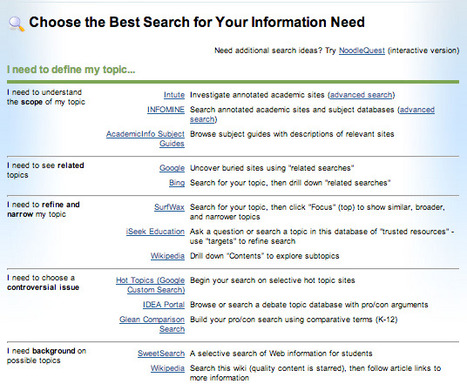Dan Russell and Mario Callegaro write: "Search engines are amazingly powerful tools that have transformed the way we think of research, but they can hurt more than help when we lack the skills to use them appropriately and evaluate what they tell us. "
Research and publish the best content.
Get Started for FREE
Sign up with Facebook Sign up with X
I don't have a Facebook or a X account
Already have an account: Login
How do we define it, teach it, know it when we see it?
Curated by
Mary Reilley Clark
 Your new post is loading... Your new post is loading...
 Your new post is loading... Your new post is loading...

Steve Whitmore's curator insight,
June 17, 2014 7:59 AM
Good reference list. I didn't realize there were so many search engines. 
ManufacturingStories's curator insight,
August 14, 2014 5:22 PM
For more resources on Social Media & Content Curation visit http://bit.ly/1640Tbl |
|













A good overview to share with teachers and students. I've been sharing the concept of lateral searching with students this year. Several have reported how helpful it is when they're researching controversial topics, especially when they find blog posts at the top of their search results. They now look up the blog'a author before continuing to read the post itself. In many cases, they've found no information on that author, which makes them think twice about using that source!